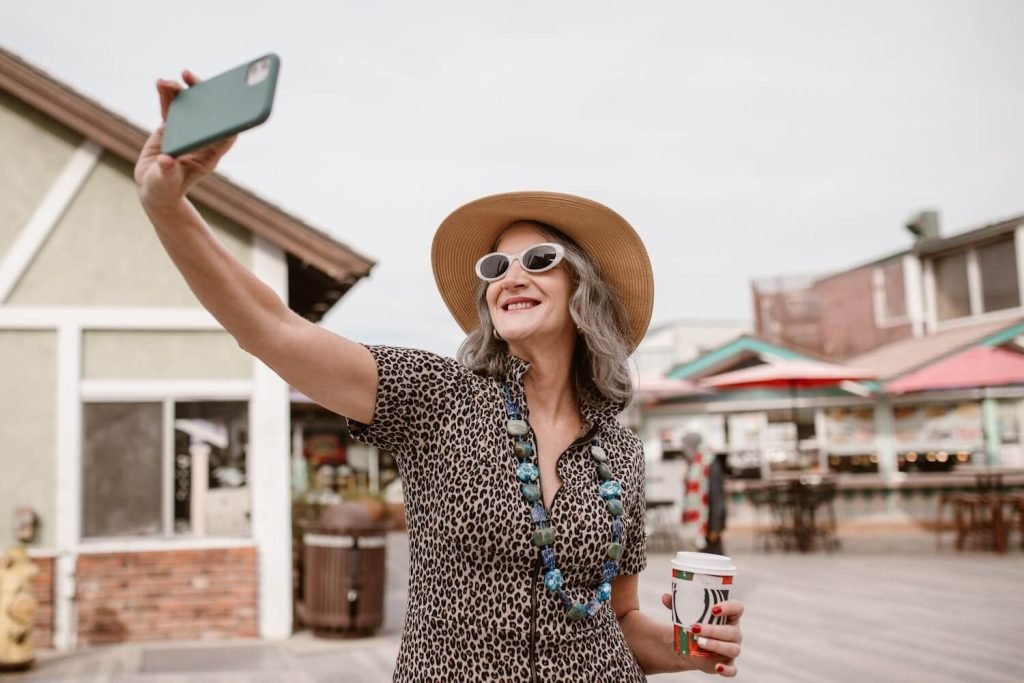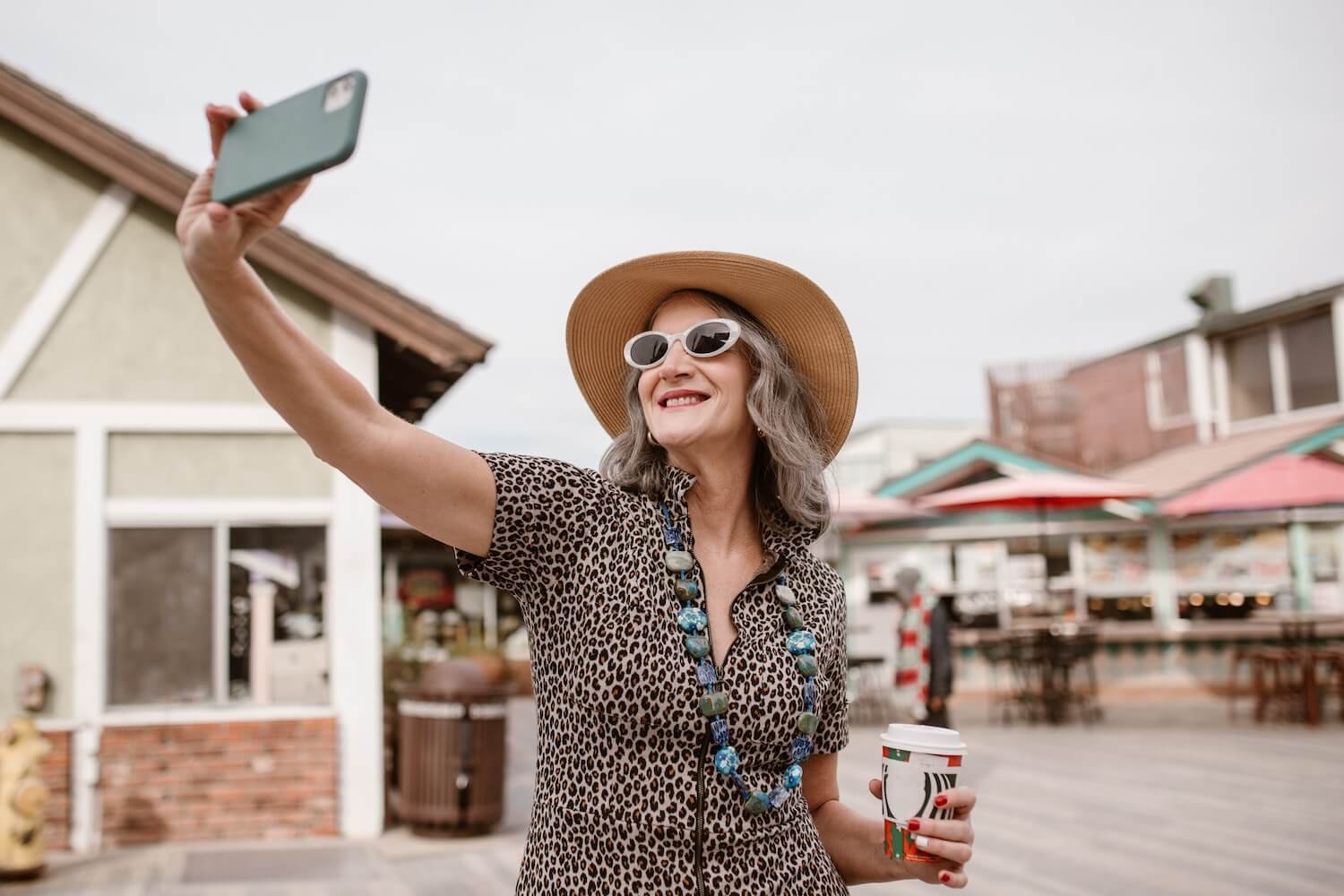If you’ve landed on this page, you’re probably one of the millions of people who enjoy the convenience of having your groceries magically appear at your doorstep, all thanks to Instacart. Ah, the joy of scrolling through aisles of virtual produce without leaving the comfort of your home—it’s a modern luxury! But wait, what’s this? Instacart wants a selfie? A what now?
Ah, the classic Instacart selfie conundrum! It’s like cruising smoothly down the highway of online shopping only to hit an unexpected speed bump. Just when you thought you were all set to get that carton of almond milk and those artisanal crackers, you’re suddenly asked to snap a selfie. What gives, right?
Well, if you’ve been scratching your head, staring at that selfie request, and wondering why on Earth a grocery shopping app would want to see your lovely face, you’re in excellent company. But fret not, for I am here to unravel this enigma! As your trusted grocery shopping expert, I’ve dug deep into Instacart’s selfie policy to give you a comprehensive, easy-to-digest guide. By the time you’re done reading, you’ll understand why this seemingly odd request is actually a stroke of genius in online security.
let’s directly answer the burning question:
Why does Instacart ask for selfies?
The straightforward reason is to bolster security and authenticate identity. Instacart uses your selfie as a second layer of verification to ensure that the person using the account is indeed you, reducing the risks associated with fraudulent activities.

Related: How Long Does Instacart Background Check Take?
Why Verification Matters
We live in a digital age where almost everything requires some form of verification. Think of it like a virtual ID check. If you’ve ever been carded before buying alcohol, you know that it’s not about inconvenience but about verifying you are who you claim to be. Similarly, Instacart’s selfie verification acts as a quick ID check to validate your identity.
Identity Theft is Real
With cybercrime rates escalating, identity theft has become a real threat. Imagine if someone gains unauthorized access to your account and starts making orders that you’re billed for? Not fun, right? That’s why this seemingly trivial selfie request carries more weight than you might initially think.
A Simple Yet Effective Measure
The process is straightforward but effective. You take a selfie, Instacart’s system compares it with the photo ID you uploaded during account creation, and if it matches, voila! You’re verified. In a world teeming with sophisticated hacking tools, sometimes simple methods like this can offer the best line of defense.
Related: Does Instacart Deliver Cigarettes?
The Security Angle: How Instacart Is Keeping You Safe
Protecting Multiple Interests
Let’s get one thing straight: Instacart’s security measures aren’t just for your benefit. It’s in the company’s best interest to maintain a secure platform that users can trust. If people don’t trust the platform, they won’t use it, which is bad for business. It’s a symbiotic relationship; Instacart needs you as much as you need a convenient shopping solution.
A World Where Hacking Is on the Rise
Cyber threats are ever-evolving, and companies are in a constant race to stay one step ahead. The online world, while convenient, is also a playground for hackers who exploit weak security systems. These cybercrooks are getting increasingly savvy, and companies like Instacart have to continually up their game to outwit them.
The Science Behind Selfie Verification
So, why a selfie? Well, facial recognition technology has come a long way and is now considered one of the more secure methods for identity verification. While you may consider account passwords to be sufficient, they can easily be hacked or stolen. However, matching a real-time selfie to an existing ID adds another level of complexity for potential hackers. The idea is backed by cybersecurity gurus, with publications such as Login Radius explaining the benefits of multi-factor authentication.
Convenience vs. Security: Finding the Middle Ground
Balancing Act: Why It Matters
Convenience is the cornerstone of any good user experience, but it often comes at the expense of security. Striking a balance between the two is an ongoing challenge for online platforms. You want your avocado toast ingredients delivered at the snap of a finger, but you also don’t want your financial details in the wrong hands.
Privacy in a Digital Age
Yes, privacy is a serious concern. Sharing a selfie might feel intrusive, but rest assured that Instacart complies with stringent data privacy regulations. Your selfie isn’t being stored for advertising or promotional purposes; it’s purely for security measures.
The Small Trade-Off
So you have to pause your podcast or Netflix binge to take a quick selfie. It may seem like a small hassle, but this minor inconvenience offers a significant advantage: a more secure shopping experience. Would you rather take a five-second selfie or spend hours resolving a hacked account? The trade-off doesn’t seem too bad when you put it that way.
Concluding Thoughts: To Selfie or Not to Selfie
The Bigger Picture
As our lives grow increasingly intertwined with digital services, we need to adjust to new security protocols, even if they feel a bit uncomfortable at first. A selfie today might feel weird, but it could very well become the norm for many online services in the future. So consider this a little peek into what’s coming down the road.
Instacart’s Evolving Security Measures
Security is a dynamic field. What’s considered secure today may not be tomorrow. Instacart is just one of many companies incorporating innovative verification methods to adapt to this ever-changing landscape. And as they evolve, we as users must adapt to maintain our digital safety.
Frequently Asked Questions
Is My Selfie Stored Permanently on Instacart’s Servers?
According to Instacart’s privacy policies, your selfie is not stored indefinitely. It is used for verification purposes and then deleted or de-identified in compliance with data protection regulations. However, always read the most recent terms of service for the most current information.
Can I Opt-Out of the Selfie Verification?
As of now, selfie verification is one of the methods Instacart employs for additional security, and opting out is generally not an option if the system triggers a request. If you have specific concerns about this, it would be best to reach out to Instacart’s customer service.
What if the Selfie Doesn’t Match with the Original ID?
If there’s a mismatch, you’ll likely be prompted to go through additional verification steps. This may include answering security questions or providing further identification. In some cases, you may need to reach out to customer service to resolve the issue.
Does Instacart Use Facial Recognition Software for the Selfie?
Instacart uses advanced algorithms to match your selfie with the ID you used to create your account. While this is not the same as full-fledged facial recognition software that identifies unique facial features, it serves the purpose of verifying that the person making the order is the account holder.
Do Other Online Shopping Platforms Also Use Selfie Verification?
While not all online platforms use selfie verification, multi-factor authentication is becoming more prevalent across various sectors, especially in services that handle sensitive personal information. Always read the security protocols of any platform you use to understand what types of verification they require.
What Do Cybersecurity Experts Say About Selfie Verification?
Cybersecurity experts often recommend multi-factor authentication, which could include something you know (a password), something you have (a phone), and something you are (a selfie or fingerprint). Selfie verification falls into the third category, making it a valuable component of a secure online environment.
The Final Say
The next time Instacart requests a selfie, know that it’s not about vanity; it’s about security. It’s a small yet crucial step in establishing trust between you and the platform. Take that selfie with pride, knowing you’re participating in keeping the digital marketplace safe and secure.
For more tips on maintaining online security, I highly recommend you read this comprehensive guide by the Federal Trade Commission.
So smile, click, and shop on! Your groceries and your personal data will thank you.


